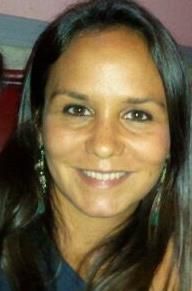Marquita Granda

Winner:
December 2013
Class of 2012
Perfect days filled with jumping off waterfalls, catching crabs, and picking fruit once invaded my memory whenever I thought of Kauai. Straight out of nursing school I found myself returning to this island where I was born and spent my formative years to work in a prison as a correctional nurse. Realizing the dream for me has involved adding previously unknown dimensions not only to the nursing profession, but also to the community I had once ignorantly viewed as “picture perfect.”
As a correctional nurse, I have been challenged with the management of acute and chronic health care problems as well as societal problems such as: generational trauma, poverty, and addiction. Potentiating the aforementioned problems is Hawaii’s recent history of cultural hegemony over the indigenous population seen time and time again around the world. While I feel incredibly privileged to work with people during their most vulnerable moments—their lowest of lows—I also feel the weight of the world on my shoulders.
Statistically and anecdotally, people with histories of childhood abuse and trauma makeup almost the entire U.S. criminal population. Furthermore, the Adverse Childhood Experiences (ACE) Study by the CDC and Kaiser found that those with six or more ACEs died 20 years earlier on average than those without ACEs. These findings are blaringly evident in the role of a correctional nurse. Even more evident is the fact that societal problems cannot be solved on an individual level alone; it’s like using a Band-Aid for a gaping wound.
Advocacy for early childhood education, sex education, literacy, drug rehabilitation, welfare, food security, parenting classes, and humane mental health treatment IS nursing. This is what I have learned during my first year as a RN. Although I no longer view Kauai as “picture perfect,” I am more intimately connected to my community than ever before and this has been the most rewarding part of realizing “the dream.”
As a correctional nurse, I have been challenged with the management of acute and chronic health care problems as well as societal problems such as: generational trauma, poverty, and addiction. Potentiating the aforementioned problems is Hawaii’s recent history of cultural hegemony over the indigenous population seen time and time again around the world. While I feel incredibly privileged to work with people during their most vulnerable moments—their lowest of lows—I also feel the weight of the world on my shoulders.
Statistically and anecdotally, people with histories of childhood abuse and trauma makeup almost the entire U.S. criminal population. Furthermore, the Adverse Childhood Experiences (ACE) Study by the CDC and Kaiser found that those with six or more ACEs died 20 years earlier on average than those without ACEs. These findings are blaringly evident in the role of a correctional nurse. Even more evident is the fact that societal problems cannot be solved on an individual level alone; it’s like using a Band-Aid for a gaping wound.
Advocacy for early childhood education, sex education, literacy, drug rehabilitation, welfare, food security, parenting classes, and humane mental health treatment IS nursing. This is what I have learned during my first year as a RN. Although I no longer view Kauai as “picture perfect,” I am more intimately connected to my community than ever before and this has been the most rewarding part of realizing “the dream.”